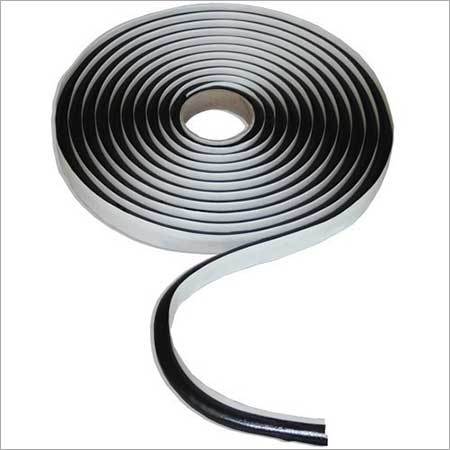
Butyl Sealant Tape
Butyl sealant, also known as butyl rubber sealant, is a versatile adhesive and sealant material made primarily from butyl rubber, a synthetic rubber known for its excellent sealing and adhesive properties.
Butyl sealant is used in various industries and applications where a strong and durable seal is required. Here are some key features and common applications of butyl sealant:
Key Features:
Adhesion and Sealant Properties: Butyl sealant adheres well to various surfaces, making it effective for creating airtight and watertight seals.
Flexibility: It remains flexible over a wide range of temperatures, allowing for expansion and contraction of materials without losing its sealing capabilities.
Excellent Weather Resistance: Butyl sealant is known for its resistance to weathering, UV radiation, and oxidation, making it suitable for outdoor and exposed applications.
Chemical Resistance: It is resistant to a variety of chemicals and solvents, which enhances its durability in harsh environments.
Vibration Damping: Butyl sealant can absorb vibrations, reducing the transmission of noise and vibration in applications like automotive and construction.
Non-Hardening: It remains soft and pliable over time, which ensures long-lasting sealing performance.
Applications:
Construction and Glazing: Butyl sealant is used in the construction industry for sealing windows, curtain walls, and glass-to-metal assemblies to provide a durable and watertight seal.
Automotive: In the automotive industry, butyl sealant is used for sealing windshield glass, tail lamps, and other vehicle components to prevent water leaks and reduce noise and vibration.
Metal Roofing: It is used in metal roofing systems to create a weatherproof seal around fasteners and joints, preventing water infiltration.
HVAC Ducts: Butyl sealant is applied to seal joints and seams in HVAC ductwork to prevent air leaks and maintain energy efficiency.
Electronics: In electronics manufacturing, butyl sealant is used to seal and protect electrical enclosures and components from moisture and contaminants.
Marine and Nautical: It is used in marine applications to seal seams and joints in boat components to prevent water intrusion and maintain buoyancy.
RV and Trailer Manufacturing: In the production of recreational vehicles and trailers, butyl sealant is used to seal exterior components and seams to protect against water leaks.
Solar Panels: Butyl sealant is applied to seal around the edges of solar panels, providing a watertight seal and protecting electrical connections.
Metal Buildings: In metal building construction, it is used to seal joints and seams in metal panels to prevent water penetration.
DIY Home Repairs: Butyl sealant is commonly used in DIY projects for sealing gaps, cracks, and joints in various household applications, such as plumbing and roofing repairs.
General Industrial Use: It is used in various industrial applications where sealing, adhesion, and vibration damping are required.
Butyl sealant is valued for its versatility and reliability in providing effective seals and adhesion. Proper surface preparation and application are essential to ensure a strong bond and long-lasting sealing performance. The choice of butyl sealant type and formulation should be based on the specific requirements of the application, such as temperature range, exposure to UV radiation, and chemical compatibility.
